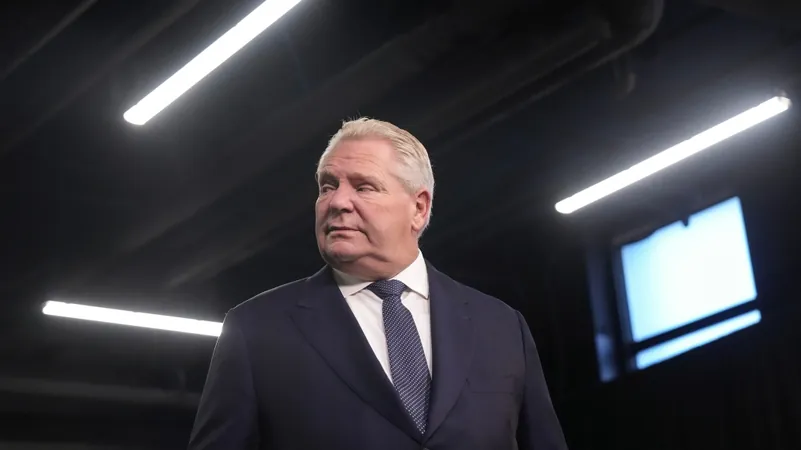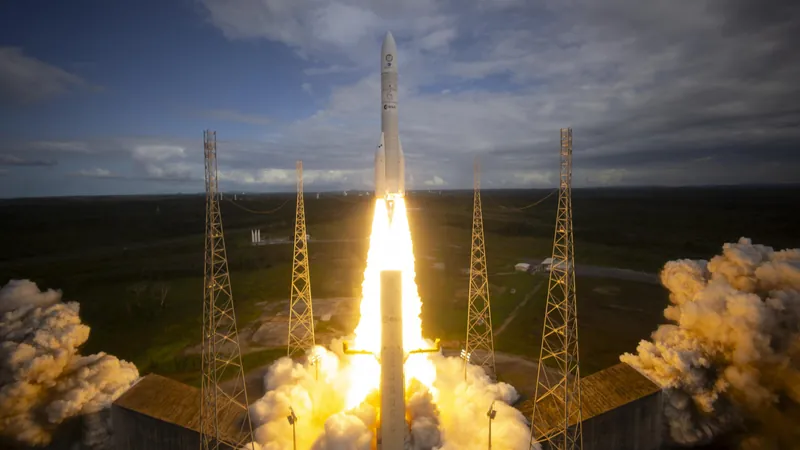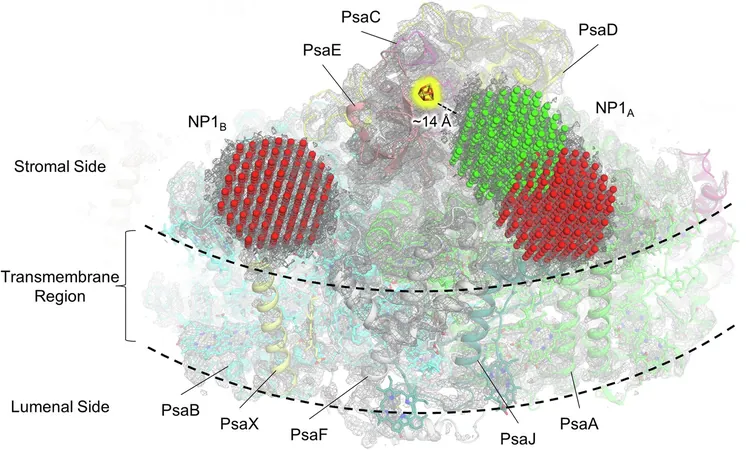
Canadian Premiers Clash Over Energy Supply Retaliation Amidst Trump's Tariff Threats
2024-12-12
Author: Sophie
Summary of the Situation
As tensions rise between Canada and the incoming U.S. administration, a notable disagreement has emerged among Canadian premiers concerning Ontario Premier Doug Ford's bold threat to cut off the province's energy supply to the United States. This declaration came just a day after President-elect Donald Trump threatened to impose significant tariffs on Canadian imports, raising concerns over potential trade wars.
Ford's Retaliation Threat
In a press conference on Thursday, Ford characterized the potential energy cutoff as a "last resort," emphasizing the need to protect the interests and livelihoods of Ontarians. “What we're sending is a message to the U.S.: ‘You come and attack Ontario, you are attacking livelihoods,’” he stated. Ford warned that if provoked, Ontario would consider halting energy exports, particularly affecting states like Michigan and New York, and thereby impacting the broader Canadian economy, given that Ontario is Canada’s largest province.
Importance of Ontario's Energy Exports
Ontario has been a powerful player in energy exports, with the Independent Electricity System Operator (IESO) reporting that in 2023, the province sent over 12,000 gigawatt hours of electricity to its U.S. counterparts, predominantly to Michigan and New York. This energy flow highlights the interconnectedness of the two nations' economies, making Ford’s threat particularly significant.
Trump's Response
Reacting to Ford’s comments, Trump seemed unfazed, suggesting that Canada should not rely on financial support from the U.S., hinting at deepening economic tensions. “We shouldn’t have to subsidize a country,” Trump remarked, indicating that he expects Canada to address U.S. border security concerns before any trade talks can commence.
Provincial Leaders' Reactions
However, Ford's approach did not garner unanimous support among other provincial leaders. Alberta Premier Danielle Smith unequivocally rejected the idea of cutting off oil and gas exports, advocating instead for a diplomatic approach to address the tariff threat. Smith criticized the retaliatory stance, stating that Alberta would work towards inclusion in a U.S. energy solution instead.
Meanwhile, Quebec Premier François Legault offered a more cautious perspective, suggesting that Prime Minister Justin Trudeau should devise a plan to mitigate the tariff risks rather than retaliate with energy supply cuts. Legault highlighted the potential for diplomatic solutions, as he recently met with Trump in Paris, where discussions regarding tariff avoidance centered on border policies took place.
Newfoundland and Labrador Premier Andrew Furey echoed this sentiment, expressing a strong desire to maintain energy exports without disruptions. The push for unity among the provinces reflects a recognition of the stakes involved in the bilateral relationship.
The Future of Canadian-American Relations
As discussions continue among Canadian leaders, the question remains: how will Canada respond to the looming threat of tariffs, and what strategies might be employed to protect its economy against Trump's combative trade policies? With potential tariffs set to impact a wide range of sectors, the stakes have never been higher, urging leaders to adopt unified and strategic responses as the situation evolves.
In an America-first rhetoric that has caused ripples across the border, could this be the beginning of serious economic warfare or will diplomacy prevail? The unfolding scenario appears set to define the future of Canadian-American relations for years to come.









 Brasil (PT)
Brasil (PT)
 Canada (EN)
Canada (EN)
 Chile (ES)
Chile (ES)
 España (ES)
España (ES)
 France (FR)
France (FR)
 Hong Kong (EN)
Hong Kong (EN)
 Italia (IT)
Italia (IT)
 日本 (JA)
日本 (JA)
 Magyarország (HU)
Magyarország (HU)
 Norge (NO)
Norge (NO)
 Polska (PL)
Polska (PL)
 Schweiz (DE)
Schweiz (DE)
 Singapore (EN)
Singapore (EN)
 Sverige (SV)
Sverige (SV)
 Suomi (FI)
Suomi (FI)
 Türkiye (TR)
Türkiye (TR)